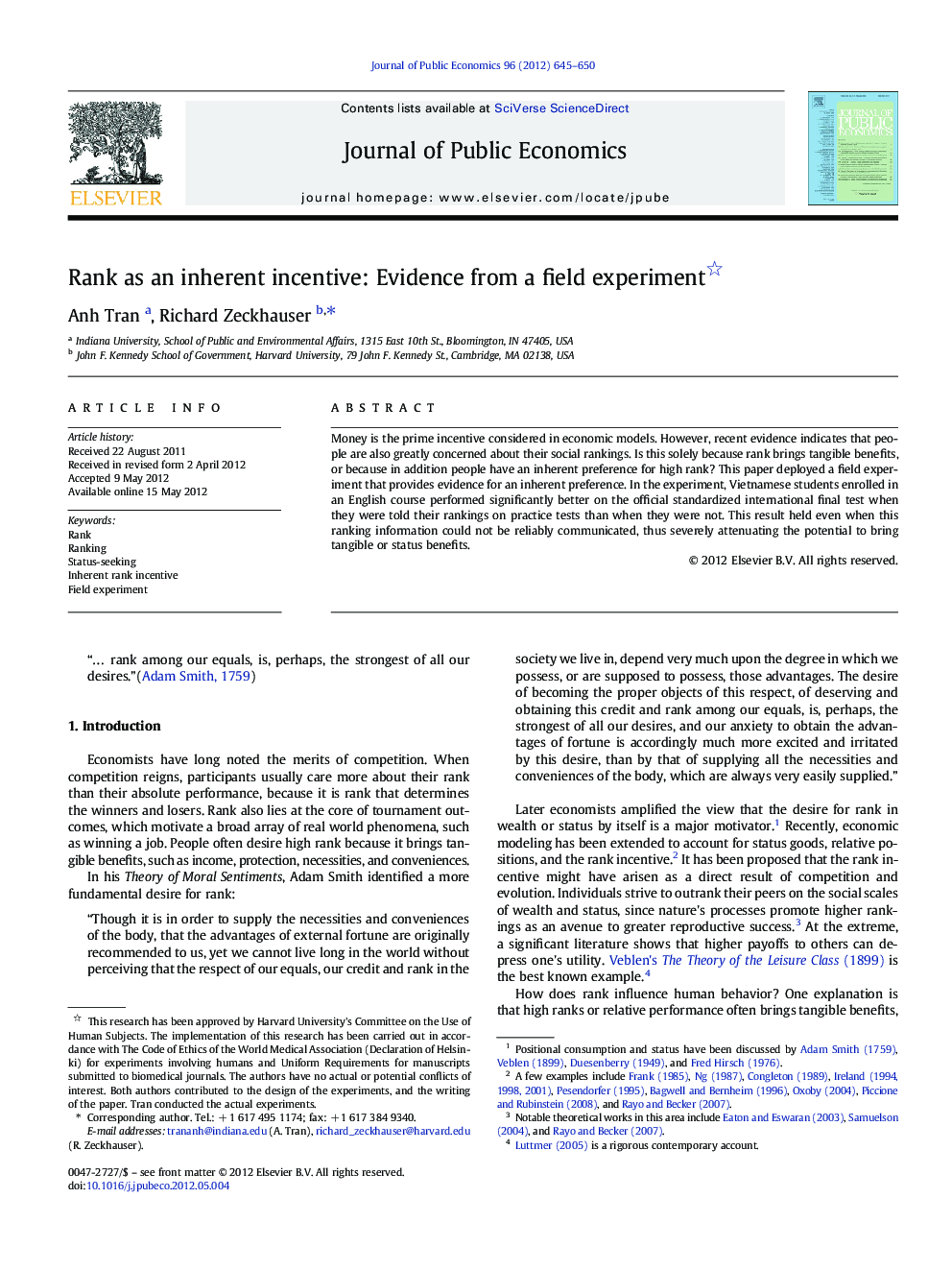| Article ID | Journal | Published Year | Pages | File Type |
|---|---|---|---|---|
| 968955 | Journal of Public Economics | 2012 | 6 Pages |
Money is the prime incentive considered in economic models. However, recent evidence indicates that people are also greatly concerned about their social rankings. Is this solely because rank brings tangible benefits, or because in addition people have an inherent preference for high rank? This paper deployed a field experiment that provides evidence for an inherent preference. In the experiment, Vietnamese students enrolled in an English course performed significantly better on the official standardized international final test when they were told their rankings on practice tests than when they were not. This result held even when this ranking information could not be reliably communicated, thus severely attenuating the potential to bring tangible or status benefits.
► Do people care about social rankings that bring no tangible benefits? ► Indeed, this field experiment found an inherent preference for high rank. ► Students told their rank during a course scored better on international final test. ► Result held when ranks were told privately, thus bringing no tangible benefits. ► Making rankings public further increased performance, but was insignificant.
